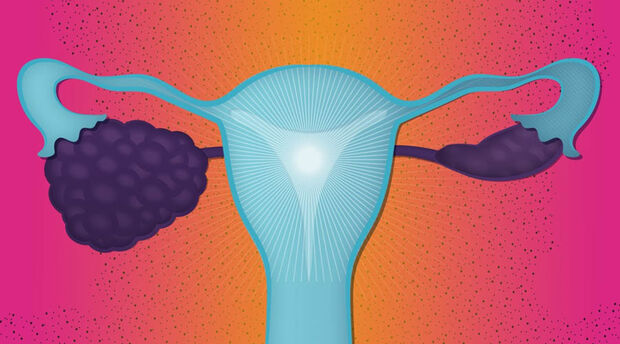Breast Cancer
Home / Our therapy areas / Oncology / Breast Cancer
As pioneers in breast cancer research and treatment for several decades, we remain committed to developing innovative medicines, as well as collaborating with the external community to break down barriers to optimal care and to transform outcomes for every person living with breast cancer no matter their disease stage, subtype, or who they are and where they live. Our ambition is to one day eliminate breast cancer as a cause of death.
Breast cancer is an ongoing challenge
We’ve made great strides in breast cancer detection;1 however, breast cancer remains an urgent public health concern.2,3,4 It is still the number one cause of female cancer deaths worldwide, with more than 665,000 deaths each year.5,6
While most people are now diagnosed with breast cancer in its early stages, approximately one in three patients will go on to develop metastatic disease7 – cancer that has spread to distant parts of their body. For some patients this happens quickly, for others it happens over many years.7 Additionally, there are still patients who are diagnosed with metastatic disease at initial presentation – particulary in lower and middle-income countries.8
Once a patient is diagnosed with metastatic disease, their five-year survival rate drops significantly.9 Nine out of 10 people diagnosed with early breast cancer will still be alive five years after diagnosis10 – this drops to around one in three once patients are diagnosed at an advanced stage.11
As the world's population grows and ages, breast cancer cases and deaths are expected to increase dramatically – with the WHO projecting more than three million new cases per year (a 40% increase) and more than one million deaths per year (a 50% increase) by 2040.12 As the prevalence and mortality rates rise, so will the economic and societal burden of breast cancer.13
To tackle the growing burden of breast cancer, we need to continue developing innovative medicines that address ongoing clinical needs, and we need to tackle the barriers to optimal care. We hope to collectively treat more than one in three patients with breast cancer by 2030.
Our R&D approach in breast cancer
For over 40 years, AstraZeneca has contributed to advances in breast cancer care and continues to have a critical role in improving outcomes for people with breast cancer.
With our expanded understanding of breast cancer biology, we now know more about the various factors driving the development and progression of breast cancer.1 This expanded knowledge has led to the discovery of novel therapeutic targets based upon individual biomarkers (key receptors or proteins).1 Today, we can classify and treat patients by their hormone receptor or HER2 expression status, and whether they have a BRCA mutation.14 As our understanding of the different factors fuelling breast cancer grows, so will our ability to develop potential medicines for new disease subtypes.15
Our industry-leading breast cancer portfolio and collection of approved and promising compounds in development build on our evolving understanding of breast cancer and leverage different mechanisms of action to address the varied clinical needs.
We are leading the charge to challenge and redefine the clinical paradigm for how breast cancer is classified and treated – leveraging existing and new diagnostic tools – to transform standards of care across subtypes and stages of disease.
Our ultimate goal is to improve survival rates and improve the chance of cure for more patients living with breast cancer.
Our scientific platforms
Antibody drug conjugates (ADCs)
Antibody drug conjugates (ADCs) are targeted medicines that aim to deliver chemotherapy agents directly to cancer cells via a linker attached to monoclonal antibody. Here we explain their mechanism of action and potential for novel cancer treatments.
DNA Damage Response (DDR)
Targeting the DNA repair process to block cancer cells’ ability to reproduce
Tumour drivers and resistance (TDR)
Cancer is caused by disruptions to the normal processes that regulate cell division. These changes often result from genetic mutations that cause the uncontrolled growth of cancer cells that eventually become tumours.
Immuno-oncology (IO)
Harnessing the immune system to reimagine cancer care and help transform outcomes
Collaborating with the breast cancer community
As we push the boundaries of science to develop life-changing medicines, we also must ensure potential patients are able to access optimal breast cancer care. We know we can’t do this alone. We are actively collaborating with world-leading academics, non-governmental organisations (NGOs), other industry partners, healthcare professionals, patients and policymakers to identify the barriers that are keeping people with breast cancer from receiving the optimal standard of care. Together we are enacting strategies to remove these barriers for all patients throughout the entire diagnosis and treatment pathway.
Tackling barriers to optimal breast cancer care for underserved patient populations
One of our programmes, Powering Breast Cancer Progress, established in 2024, is a global grant initiative we are funding and which is supported by the Charities Aid Foundation. It aims to improve breast cancer care for underserved patient populations and patients living in areas of low socioeconomic status.
In 2024, the grant programme focused on breast cancer patient navigation, which has been shown to improve patient outcomes and reduce the impact on healthcare systems.16-21 Visit the Powering Breast Cancer Progress grant page for more information about the programme and the 2024 awardees.
More of our Work in Breast Cancer
Empowering patients with information about breast cancer subtypes and biomarkers
While new approaches to classify and manage breast cancer bring numerous benefits to patients, these advancements often make it harder for patients to understand and take part in decisions about their care and treatment.
To support patients more effectively, we funded and delivered a global study, in partnership with ABC Global Alliance, to identify the challenges people diagnosed with metastatic breast cancer face in learning about the subtype they have and associated biomarkers.
Future of Breast Cancer Care
With more than 35 ongoing breast cancer trials with our approved and potential new medicines, we are focused on the needs of people living with breast cancer now and in the future.
We are investigating how to optimise diagnostic strategies that can help match each patient with the right treatment at the right time based upon their individual biomarker profile, and exploring potential sequencing and combination strategies to improve outcomes for patients.
At the same time, we are working with the external community to help strengthen healthcare systems by advocacting for health system policy reforms and building capabilities to improve the delivery of healthcare services. We hope that in the future, everyone living with breast cancer will receive the best possible breast cancer care across the entire patient care pathway – from awareness, diagnosis, treatment to post-treatment and wellness – regardless of who they are or where they live.
Our people
By following the science and working with the community, we can make the biggest possible difference to patients, a meaningful contribution to society and a positive impact on our planet.
Our people working to transform breast cancer care are accomplished and experienced scientists, researchers, clinicians, advocates, healthcare and commercial professionals dedicated to putting people with breast cancer and the oncology community first.
Other Oncology areas of focus
References
1. Feng Y, et al. Breast cancer development and progression: Risk factors, cancer stem cells, signalling pathways, genomics, and molecular pathogenesis. Genes & diseases. 2018;5(2), 77–106.
2. Siegel RL, Miller KD, Jemal A. Cancer statistics, 2020. CA Cancer J Clin. 2020;70:7-30.
3. Brawley OW, Berger MZ: Cancer and disparities in health: Perspectives on health statistics and research questions. Cancer 113:1744-1754, 2008 (suppl 7).
4. Byers T. Two decades of declining cancer mortality: Progress with disparity. Annu Rev Public Health. 2010;31:121–132.
5. World Health Organization. Global cancer burden growing, amidst mounting need for services. Available at: https://www.who.int/news/item/01-02-2024-global-cancer-burden-growing--amidst-mounting-need-for-services. Accessed January 2025.
6. Bray F, Laversanne M, Sung H, et al. Global cancer statistics 2022: GLOBOCAN estimates of incidence and mortality worldwide for 36 cancers in 185 countries. CA Cancer J Clin. 2024; 1-35.
7. Redig AJ, McAllister SS. Breast cancer as a systemic disease: a view of metastasis. J Intern Med. 2013 Aug;274(2):113-26. doi: 10.1111/joim.12084. PMID: 23844915; PMCID: PMC3711134.
8. Tfayli A, Temraz S, Abou Mrad R, Shamseddine A. Breast cancer in low- and middle-income countries: an emerging and challenging epidemic. J Oncol. 2010;2010:490631. doi: 10.1155/2010/490631. Epub 2010 Dec 15. PMID: 21209708; PMCID: PMC3010663.
9. Wang R, Zhu Y, Liu X, Liao X, He J, Niu L. The Clinicopathological features and survival outcomes of patients with different metastatic sites in stage IV breast cancer. BMC Cancer. 2019 Nov 12;19(1):1091. doi: 10.1186/s12885-019-6311-z. PMID: 31718602; PMCID: PMC6852913.
10. Cancer Research UK. Survival for breast cancer. Available at: https://www.cancerresearchuk.org/about-cancer/breast-cancer/survival. Accessed January 2025.
11. Cancer Research UK. Why is early cancer diagnosis important? Available at: https://www.cancerresearchuk.org/about-cancer/spot-cancer-early/why-is-early-diagnosis-important. Accessed January 2025.
12. Arnold M, Morgan E, Rumgay H, et al., 2022. Current and future burden of breast cancer: Global statistics for 2020 and 2040. The Breast, 66, pp.15-23.
13. Chen S, Cao Z, Prettner K, Kuhn M, Yang J, Jiao L, Wang Z, Li W, Geldsetzer P, Bärnighausen T, Bloom DE, Wang C. Estimates and Projections of the Global Economic Cost of 29 Cancers in 204 Countries and Territories From 2020 to 2050. JAMA Oncol. 2023 Apr 1;9(4):465-472. doi: 10.1001/jamaoncol.2022.7826. PMID: 36821107; PMCID: PMC9951101.
14. American Cancer Society. Breast Cancer Hormone Receptor Status. Available at: https://www.cancer.org/cancer/types/breast-cancer/understanding-a-breast-cancer-diagnosis/breast-cancer-hormone-receptor-status.html. Accessed January 2025.
15. Wang L, Zhang S and Wang X, 2021. The metabolic mechanisms of breast cancer metastasis. Frontiers in Oncology, 10, p.602416.
16. World Health Organisation. Breast cancer inequities. Available at: https://www.who.int/initiatives/global-breast-cancer-initiative/breast-cancer-inequities Accessed January 2025.
17. Freeman HP, Rodriguez RL: History and principles of patient navigation. Cancer 117:3539-3542, 2011 (suppl 15)
18. Baik SH, Gallo LC, Wells KJ. Patient Navigation in Breast Cancer Treatment and Survivorship: A Systematic Review. J Clin Oncol. 2016 Oct 20;34(30):3686-3696.
19. Natale‐Pereira A, Enard KR, Nevarez L, Jones LA. The role of patient navigators in eliminating health disparities. Cancer. 2011 Aug 1;117(S15):3541-50.
20. World Health Organisation. Patient navigation for early detection, diagnosis and treatment of breast cancer: technical brief. Available at: https://www.who.int/publications/i/item/9789240100954. Accessed January 2025.
21. Bernardo BM, Zhang X, Beverly Hery CM, Meadows RJ, Paskett ED. The efficacy and cost‐effectiveness of patient navigation programs across the cancer continuum: a systematic review. Cancer. 2019 Aug 15;125(16):2747-61.
Veeva ID: Z4-71485
Date of preparation: January 2025


